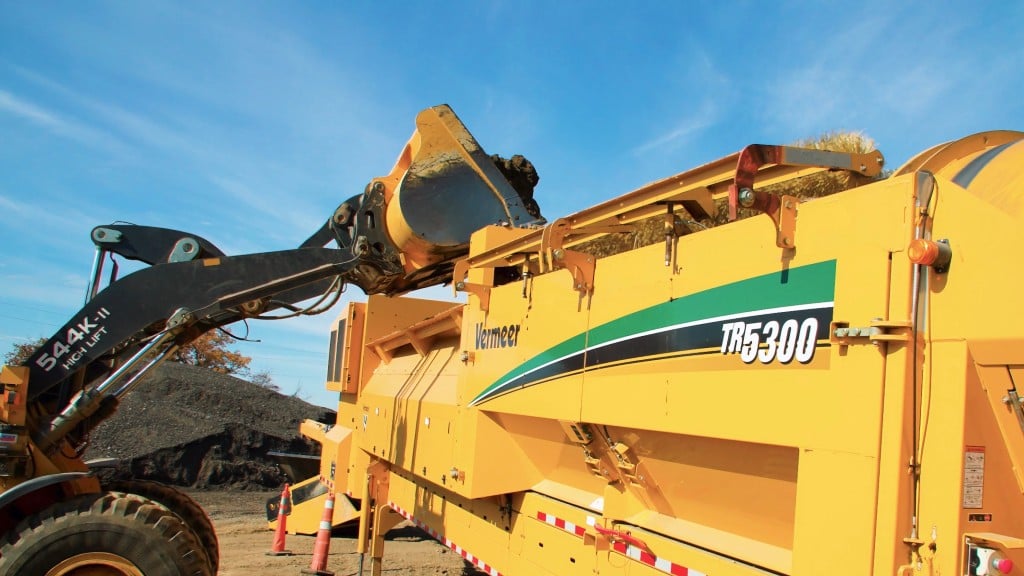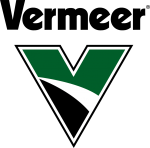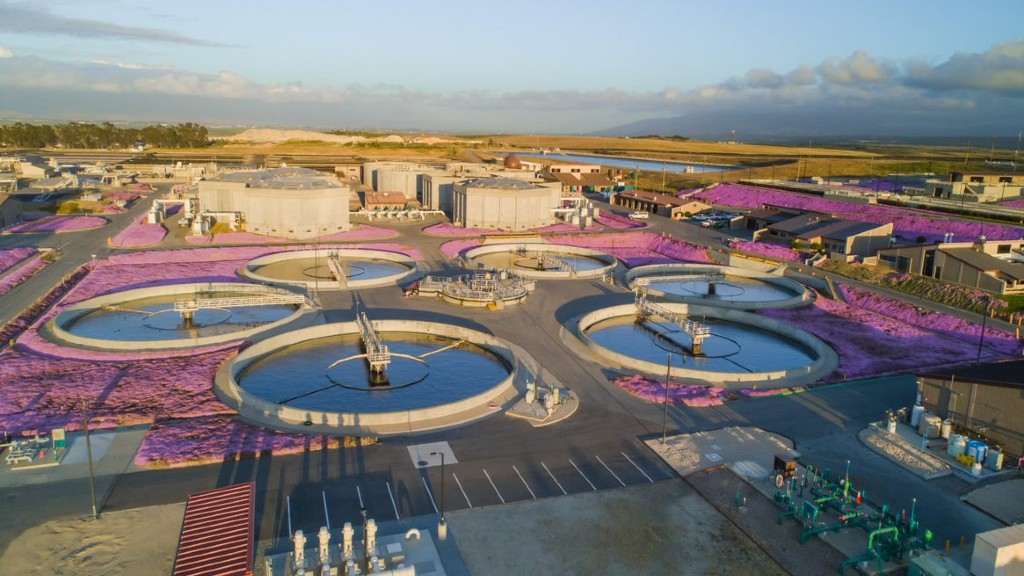
John Ritter, the owner of Ritter Materials in Brookville, Ohio, did not plan on starting a landscaping material company as he approached retirement. Starting early in his career, Ritter helped build a utility company, Ritter Plumbing, that served the local area. That company expanded from a residential plumbing service to a team responsible for replacing water and sewer lines and installing new electrical and gas services. Just as that company evolved with community needs, so did Ritter Materials. John recognized a need and an opportunity to give back to the community that had supported him for many years.
"Memorial Day 2019 is a day everyone in Brooksville will remember for a long time," said Ritter. "An EF4 tornado tore through Montgomery County, leaving a path of destruction spanning 20 miles. When the cleanup effort began, the city needed a location to dispose of over 10,000 cubic yards of organic wood waste. I offered them a piece of land I owned for this purpose."
A business is born
As the piles grew higher, Ritter decided to rent a horizontal grinder to process it all.
"At first, we planned just to spread the mulch around a bit and offer it to people in the community," Ritter explained. "We quickly realized that there may be a bigger opportunity for us to serve the community than just this one-time venture. That's when Ritter Materials was started."
Ritter recognized his own business's need a couple of years earlier. Ritter Plumbing specializes in horizontal directional drilling, and restoration is always the final step of a project. One of the most challenging aspects of planning that phase is securing clean black dirt to lay down before seeding a work area.
To address this challenge, Ritter purchased the piece of land that later became the home of Ritter Materials.
"We bought the land to produce our own topsoil for our utility business," said Ritter. "To ensure the best quality, we also invested in a Vermeer TR5300 trommel screen to process everything. Soon after, other contractors started asking to buy topsoil from us as well. We did that for a few years and now have incorporated it into the Ritter Materials business."
Opportunity to serve
After initially renting a horizontal grinder following the tornado, Ritter decided it was time to invest in one to complement his Vermeer trommel screen. He purchased a Vermeer HG4000 horizontal grinder.
"We chose a Vermeer grinder because we have been using Vermeer equipment since the 1990s and the team at Vermeer Heartland has always provided excellent support. It's quite unique to transition from working with utility equipment to working with recycling machines manufactured and supported by the same company."
These two machines are at the heart of Ritter Materials operations. In addition to storm debris, the yard receives material from tree service and right-of-way clearing contractors. According to Ritter, this gives his team an excellent, sustainable flow of clean material for making high-quality mulch.
But Ritter Materials doesn't just produce mulch. There is also a high demand for topsoil and a variety of aggregates. Recently, the company started experimenting with coloured mulch to expand its operations.
"Most of our customers are local property owners, but we sell to a few contractors doing landscaping and general construction work in the area," said Ritter. "We're still a pretty new organization, so I think we'll see that part of the business grow."
Turning waste into revenue
All incoming organic waste is stacked and then processed using the Vermeer HG4000 horizontal grinder. Afterward, Ritter allows the material to sit for approximately a year before replacing the screens on the grinder with smaller ones for regrinding. The material that comes out of the grinder is then passed through the TR5300 trommel screen to minimize the presence of fines in the mulch. This process helps Ritter Materials produce a high-quality, uniform and visually appealing product.
"Product size consistency is important to our customers and something that I think sets us apart from buying some bagged mulch or other bulk producers," said Ritter. "We are extremely diligent in creating a product that we would be proud to use at our homes and around the community."
Organic wood waste isn't the only material finding a new life at Ritter Materials. The company began taking milled asphalt from road repaving projects a few years ago. The team runs the milled material through their Vermeer trommel screen to separate larger, chunky material from the fine-milled asphalt. The chunky material is then further processed until it's sized appropriately. Afterward, the fine material can be reused to build foundations or pave driveways.
"The ultrafine asphalt that we produce just requires a little heat before it looks like a freshly poured driveway," said Ritter. "It's economical and gives the asphalt a second life."
Processing topsoil
As a former contractor, Ritter understands that no construction project is complete until everything is restored to its original condition. This includes growing grass and other vegetation requiring clean and dry topsoil.
"We used to source our topsoil on-site by using dirt from a retention pond we built," explained Ritter. "Now, we mostly obtain dirt from other construction projects. We often collaborate with construction project owners and handle the transportation ourselves, creating a win-win situation. They can control their project expenses, and we can meet the demand of our customers."
Ritter Materials carefully screens all the dirt they receive to remove rocks and other debris. The processed topsoil is stored in a large hoop building to keep it dry.
To facilitate the transportation of topsoil from the trommel screen to the building, Ritter purchased an 80-foot (24.4-metre) Vector VT80 track-mounted conveyor from Vermeer Heartland. This conveyor has greatly improved the efficiency of the entire process by eliminating the need to move the material one bucket load at a time. Instead, they have set up the fines conveyor of the TR5300 to feed into the hopper of the Vector, which transports the material directly to the top of the pile in the hoop building.
"We spend a lot of time moving material and stacking it," explained Ritter. "That can become a lot of work if we only use wheel loaders. The Vector conveyor is on track, making it easy to reposition and assist with whatever project we're focused on. We use it to stack mulch, load trucks or transport material around the facility. It has helped us get work done with a minimal number of people."
Looking ahead
Ritter began working full-time for his father's plumbing business after graduating from high school in 1978. Over time, he and his brother took over the business, which has undergone significant changes. The company has grown, and its focus has evolved to meet the needs of the communities it serves. Currently, Ritter's nephew is in charge of the business operations.
Ritter may never have thought he would start a new business in his retirement years, but his commitment to serving his neighbours has never slowed down. Ritter Materials continues to expand to meet the landscaping material needs of property owners and professional contractors working around Brookville.



